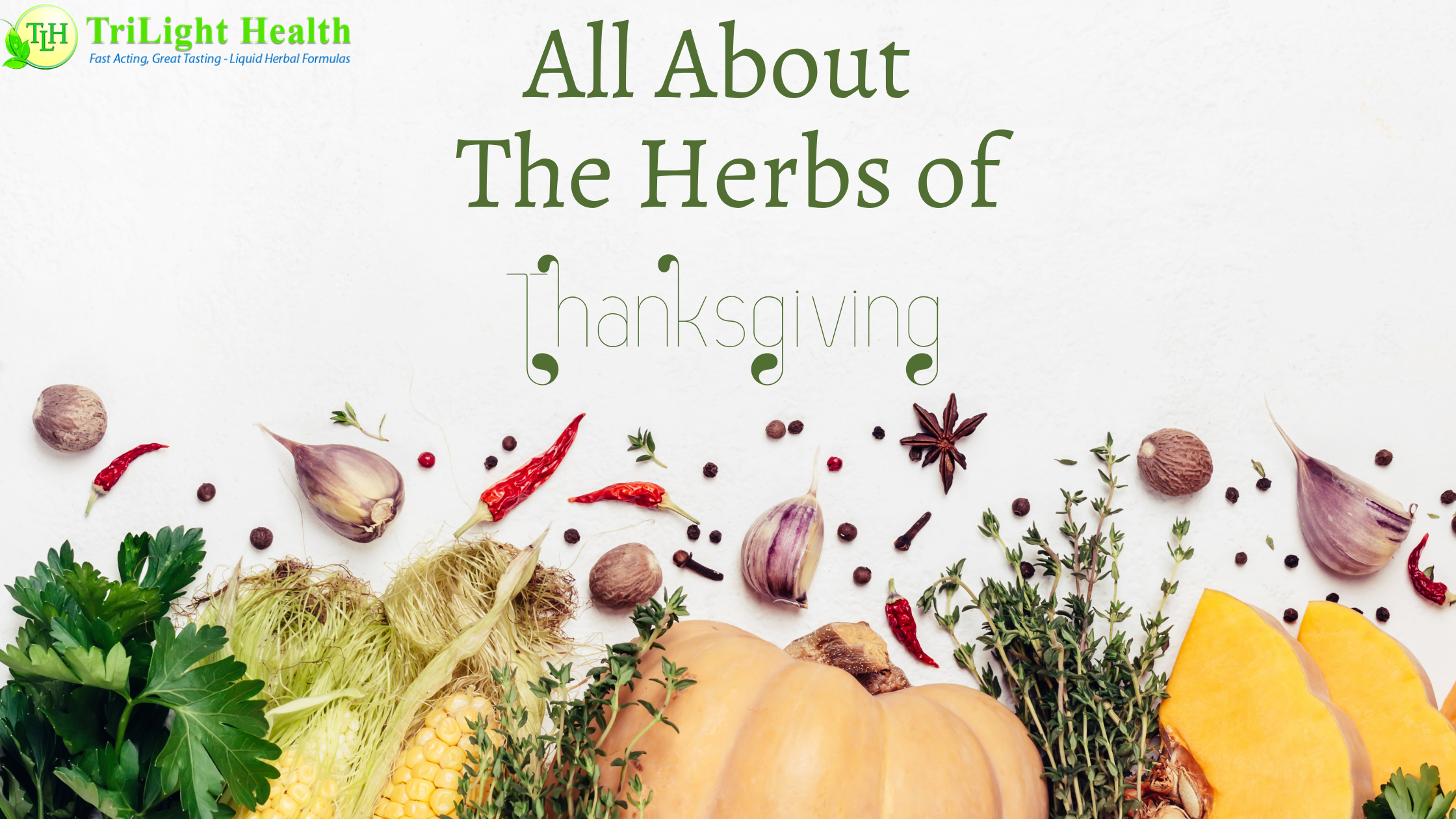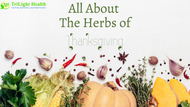All About the Herbs of Thanksgiving
Posted by TriLight Health on Nov 11th 2021
The first thing most people think of with Thanksgiving is food. This is the season bundles of fresh herbs are readily used. When we pull out seasonal spice blends and have our favorite "holiday tastes." Did you know most of the culinary herbs used around Thanksgiving are also medicinal? Today let's look at some of the ways herbalists use the traditional herbs of Thanksgiving.

All About The Herbs of Thanksgiving
In culinary terms, some of these considered a spice and not an herb. For our purposes today we're going to focus on how herbalists would approach these and not worry about semantics of spice versus herb.
Note- most recipes do not use large enough quantities of herbs to glean much of a medicinal benefit from them. Though you may get a small benefit, most herbs are best used over a period of time and in larger amounts.
Cinnamon has traditionally been used as a warming element. Herbalists also use it for endocrine and digestive support as well as for infections. It is a great herb to add to blends for boosting the flavor profile too.
Fennel is best known as a traditional colic remedy. Many a Grandma has advised giving a baby a catnip and fennel tincture for colic. This herb can act on adult digestive systems as well. It's a great addition to nibble on towards the end of a Thanksgiving meal to bring relief from overeating.
Ginger blends well with cinnamon and shares a lot of the same uses. Ginger is best known for digestive relief. It is often chosen to calm an upset stomach. Cultures worldwide and herbalists also use ginger for stomach bugs and food poisoning.
Parsley happens to be high in a number of vitamins and minerals. Herbalists turn to parsley as a diuretic, for endocrine support, for kidney and gallbladder support, and many other uses.
Rosemary is best known as a stimulating herb. Herbalists also use it to help aid with memory and focus. Rosemary has traditionally been used as part of headache care around the world as well.
Sage is a strong antiseptic and anti-inflammatory herb. It is also a calming herb that may help relax the nervous system. The flavor can be a bit overpowering though and it can be tricky to use in herbal remedies.
Thyme happens to be an herb that herbalists turn to often this time of year. It is traditionally used during times of cold, flu, and respiratory illnesses. It's naturally antibacterial, antiviral, antiseptic, and anti-fungal (among many other properties). Plus it is high in a number of vitamins and minerals and easy to mix for a pleasant flavor.
Breastfeeding moms- parsley and sage (as well as mint) can lower milk supply. In fact, lactation consultants get an influx of calls from mothers who see a drop in supply at Thanksgiving because of the large amounts of these herbs that are used. If you struggle with milk supply already, you may wish to use half the normal amount of these ingredients in your Thanksgiving recipes. Or adjust what you eat a bit to not eat as much of them. Many mothers like to have MegaMam on hand during the holiday season too. Make sure to consult a lactation consultant, midwife, or another qualified provider for help with breastfeeding and milk supply.





